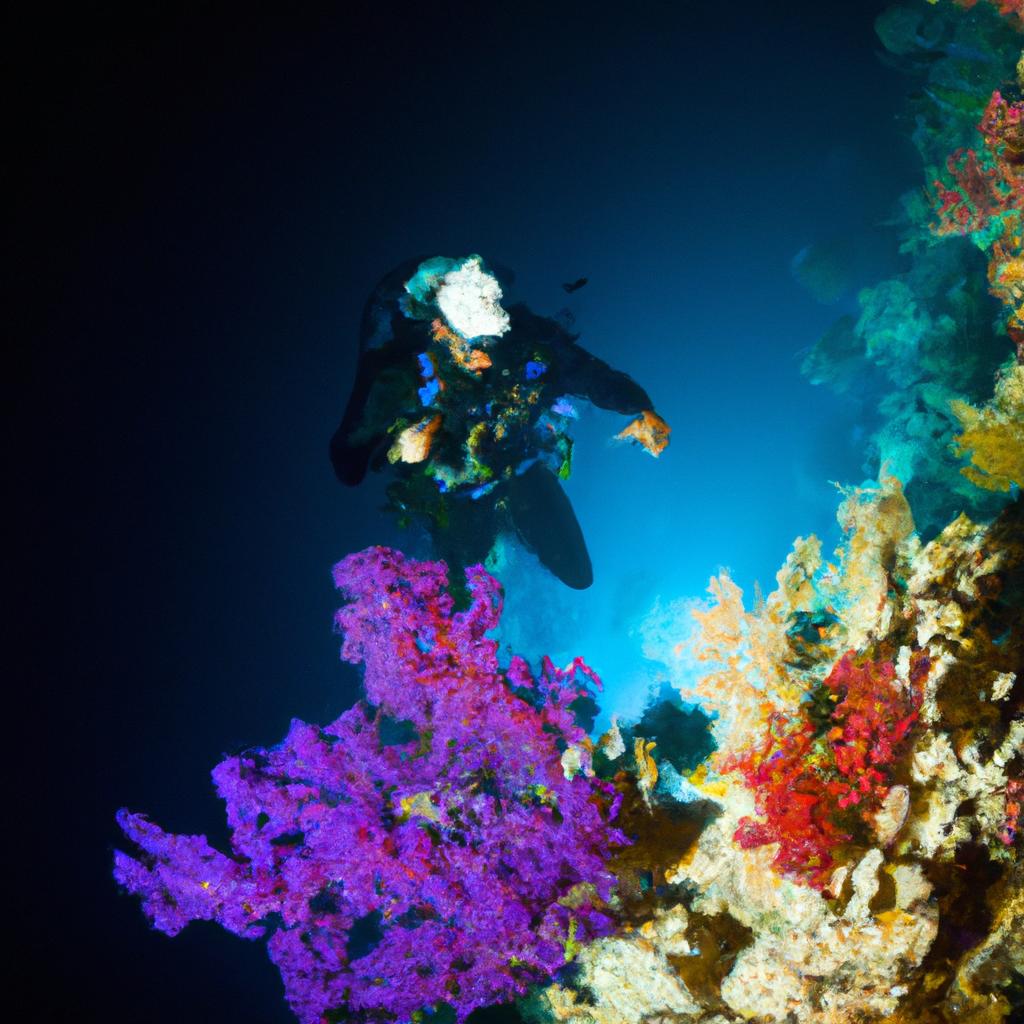Coral reefs play a vital role in our ocean’s ecosystem, offering a haven to countless marine creatures and safeguarding coastlines against the ravages of storms and erosion. These delicate ecosystems face mounting threats from climate change and human activities, making it more important than ever to comprehend their splendor and value.
While many have experienced the wonder of coral reefs during daylight hours, there is an undiscovered realm to explore after dark. Coral reefs at night unveil an extraordinary and enigmatic beauty that simply cannot be missed.
Immersing oneself in the nocturnal world of coral reefs not only creates unforgettable memories but also leads to groundbreaking scientific discoveries. Many marine creatures venture out to play when night falls, exhibiting behaviors hidden during the day. Moreover, the mesmerizing spectacle of bioluminescence becomes easily observable, offering a breathtaking display of radiant colors that leaves an indelible mark.
Unveiling the Science of Coral Reefs at Night
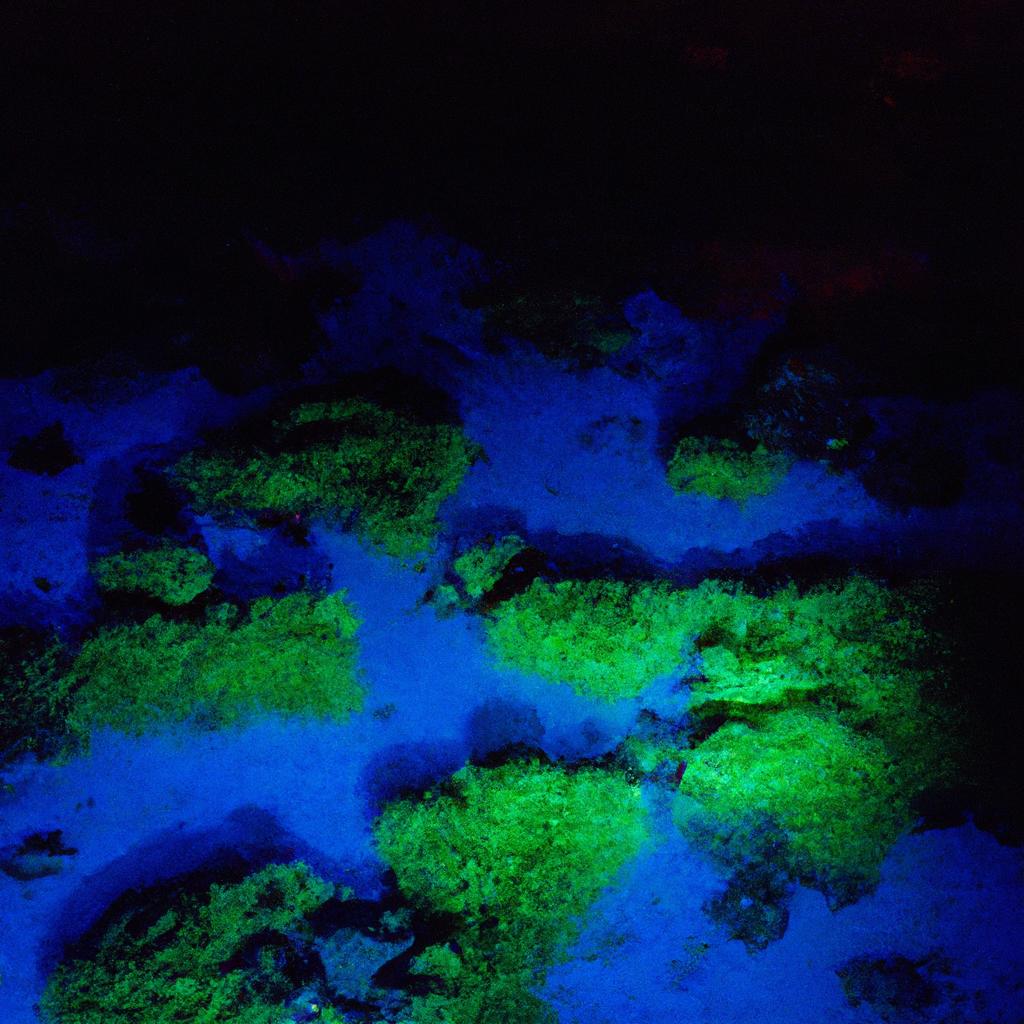
Exploring the Fascinating World of Bioluminescence
Bioluminescence, the production and emission of light by living organisms such as plankton, jellyfish, and coral, stands as a remarkable feature of marine life, especially captivating under the cover of darkness. Various creatures in coral reefs display bioluminescent properties, including specific fish species, shrimp, and squid.
Unveiling the Role of Bioluminescence in Coral Reef Ecosystems
Bioluminescence serves multiple vital functions in coral reef ecosystems. Certain fish species employ it as a means of communication, while others use it to lure unsuspecting prey. Some jellyfish and coral species employ bioluminescence to deter predators by emitting flashes of light that startle and confuse them.
Preserving Natural Marine Environments for Bioluminescence
Bioluminescence, like many facets of marine life, faces threats stemming from human activities such as pollution, overfishing, and climate change. To preserve the natural marine habitats where bioluminescence thrives, it is imperative to take measures to protect and conserve coral reefs. This encompasses reducing plastic waste, supporting sustainable fishing practices, and taking action to mitigate the impact of climate change.
By comprehending the science behind bioluminescence and understanding its crucial role in coral reef ecosystems, we can truly appreciate the beauty and complexity of these fragile habitats and actively work towards their protection for future generations.
Plunging into the Depths of Coral Reefs at Night
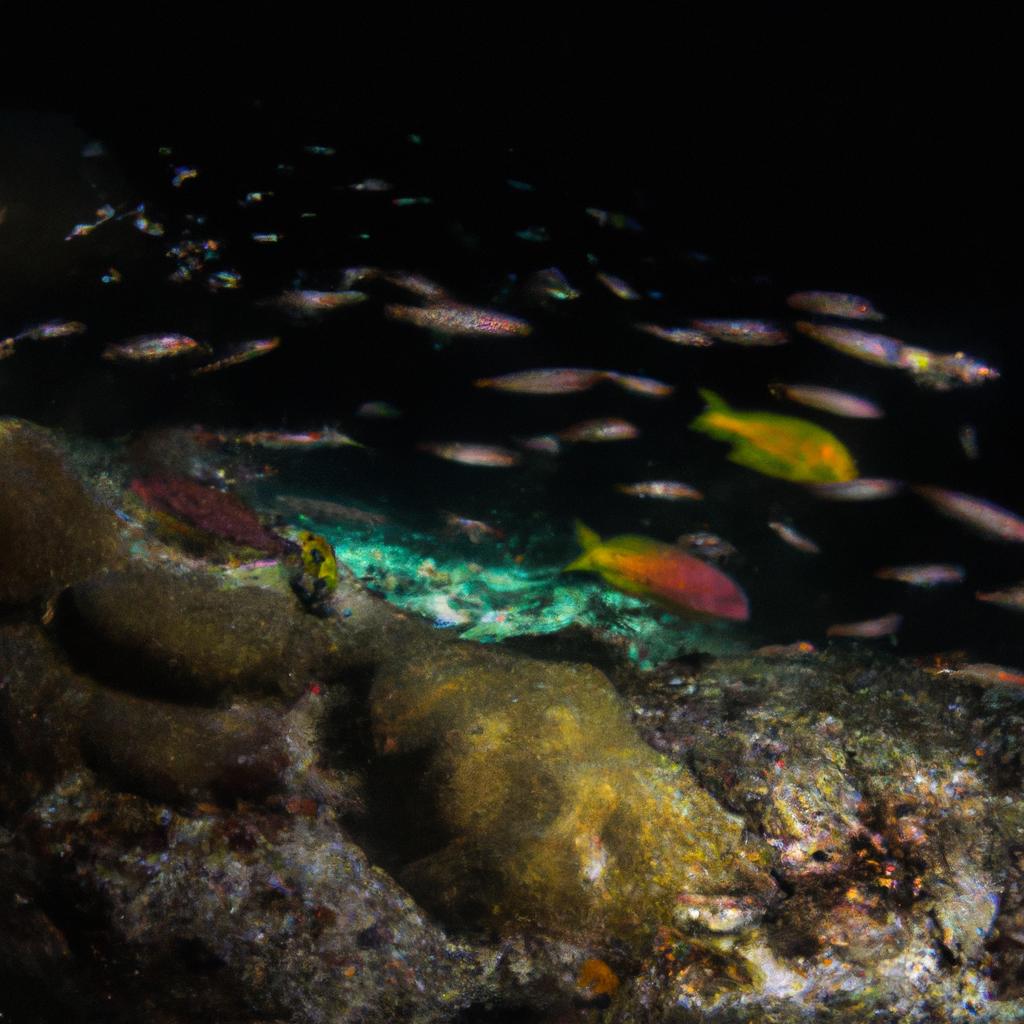
Preparing for a Night Dive in Coral Reefs
Diving into the depths of coral reefs at night proves to be an awe-inspiring experience, but it necessitates meticulous preparation. Prior to embarking on a night dive, ensuring that you possess the necessary equipment and training is paramount. This includes a powerful underwater flashlight, a compass, and thorough knowledge of the dive site and the behavior patterns of the marine creatures residing within.
Checking weather and tide conditions before diving is also crucial. Night diving, more arduous than its daytime counterpart, necessitates a clear understanding of the conditions you will encounter.
An Overview of Nocturnal Marine Life in Coral Reefs
Night diving in coral reefs offers a unique window into the lives of marine creatures that remain hidden during the day. Nocturnal activities include feeding and mating for many species, from octopuses and eels to crustaceans. Fish that lie low under the cover of darkness emerge to swim and hunt, such as parrotfish, squirrelfish, and groupers.
Among the most awe-inspiring and mysterious sights one can witness at night are the vivid bioluminescent displays put on by various marine creatures. Bioluminescence, a natural phenomenon wherein organisms emit light through chemical reactions, presents a dazzling show of glowing colors that leaves an enduring impression.
Highlighting the Unique Aspects of Coral Reefs at Night and Contrasting the Experience with Daytime Diving
Coral reefs at night present an entirely different experience compared to their daytime counterparts. Absence of sunlight fosters an air of mystery and unveils new facets of the reef previously unseen. The colors of the coral and marine creatures become more vibrant, and the flashlight’s cast shadows create a dramatic effect.
Moreover, the lack of human activity at night bestows a more serene and secluded diving experience. The silence and darkness generate a sense of tranquility unattainable during daylight hours.
In summary, diving into the depths of coral reefs at night offers a distinctive and unforgettable encounter that provides fresh perspectives on the beauty and enigma of these delicate ecosystems.
Safeguarding and Conserving Coral Reefs at Night
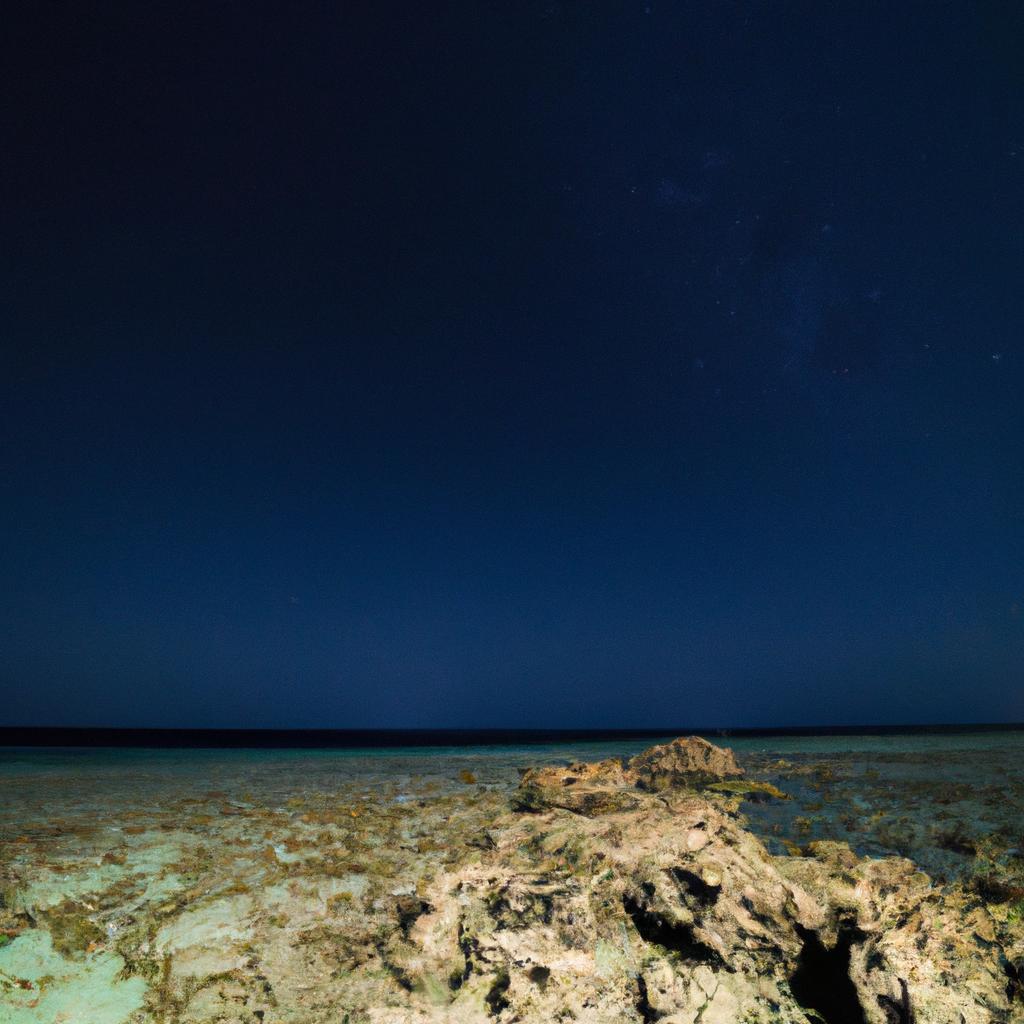
Coral reefs comprise incredibly fragile ecosystems facing threats from climate change and human activities. It is essential that we take measures to safeguard these critical habitats, particularly during the vulnerable nighttime hours when marine creatures are most exposed.
Emphasizing the Importance of Preserving Coral Reefs, Especially at Night
Coral reefs serve as homes for a vast array of marine creatures, including fish, sea turtles, and sharks. These ecosystems offer not only sanctuary for these creatures but also crucial food sources for local communities and popular tourist attractions.
Protecting coral reefs is indispensable for their survival and for maintaining the balance of our oceans’ ecosystems. As night falls, numerous marine creatures emerge, underscoring the need to safeguard these habitats.
Identifying Potential Threats to Coral Reefs at Night
Numerous perils loom over coral reefs at night, ranging from overfishing to pollution and climate change. Overfishing can lead to declining fish populations, disrupting the ecosystem’s equilibrium. Pollution stemming from human activities, such as oil spills and wastewater, can harm coral reefs and marine creatures. Climate change, with rising sea temperatures and ocean acidification, causes coral bleaching and disrupts the entire ecosystem.
Proposing Measures to Aid in Protecting and Preserving Coral Reefs
Multiple avenues exist to aid in protecting and preserving coral reefs. Supporting marine conservation organizations such as the Coral Reef Alliance or The Ocean Foundation, dedicated to safeguarding coral reefs worldwide, stands as an impactful approach.
Additionally, individuals can minimize their impact on the environment by reducing plastic consumption and using reef-safe sunscreen. When visiting coral reefs, adhering to responsible tourism practices, refraining from touching or causing harm to marine creatures, and leaving no trace behind are essential.
By taking steps to safeguard and conserve coral reefs at night, we guarantee that these vital ecosystems continue to thrive for generations to come.
Capturing the Breathtaking Beauty of Coral Reefs at Night
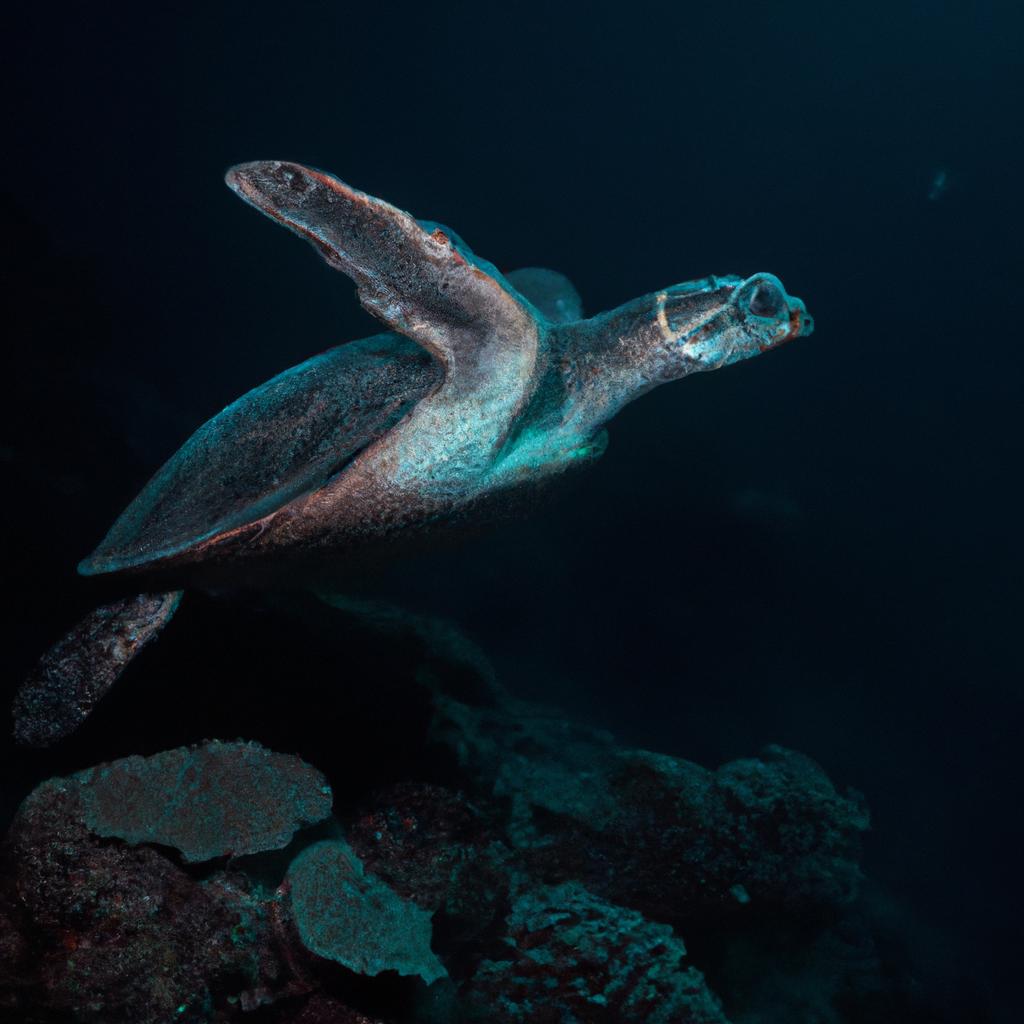
Techniques and Equipment for Underwater Photography at Night
Capturing the captivating beauty of coral reefs at night necessitates specialized equipment and techniques. A camera with manual controls and a wide-angle lens is indispensable, alongside a strobe or underwater light to illuminate the subject. A stable platform to steady the camera is crucial to avoid blurring.
To ensure outstanding results, shooting in RAW format allows greater flexibility in post-processing. Utilizing a low ISO and slower shutter speed permit a greater intake of light, resulting in brighter and more vibrant images.
Tips for Immortalizing the Beauty of Coral Reefs at Night
When photographing coral reefs at night, patience and attentiveness to detail are paramount. Seek out intriguing compositions and unique perspectives to make your images stand out.
It is also vital to remain cognizant of your surroundings and the marine life you are capturing. Avoid touching or disturbing the coral and marine creatures, and never utilize flash photography on bioluminescent creatures, as it can harm them.
Lastly, don’t forget to savor the experience of photographing coral reefs at night. It presents a remarkable and unforgettable occasion to capture the allure of these underwater worlds.
Practicing Responsible Photography and Minimizing Environmental Impact
As with any form of photography, responsible practices are vital when capturing images of coral reefs at night. This entails recognizing the impact your actions can have on the environment and taking steps to minimize any damage.
Always adhere to local regulations and guidelines when diving and photographing coral reefs. Refrain from touching or disturbing the coral and marine creatures, and never remove anything from the reef.
By practicing responsible photography, each one of us contributes to the protection and preservation of the delicate ecosystems of coral reefs for future generations to enjoy.
Conclusion
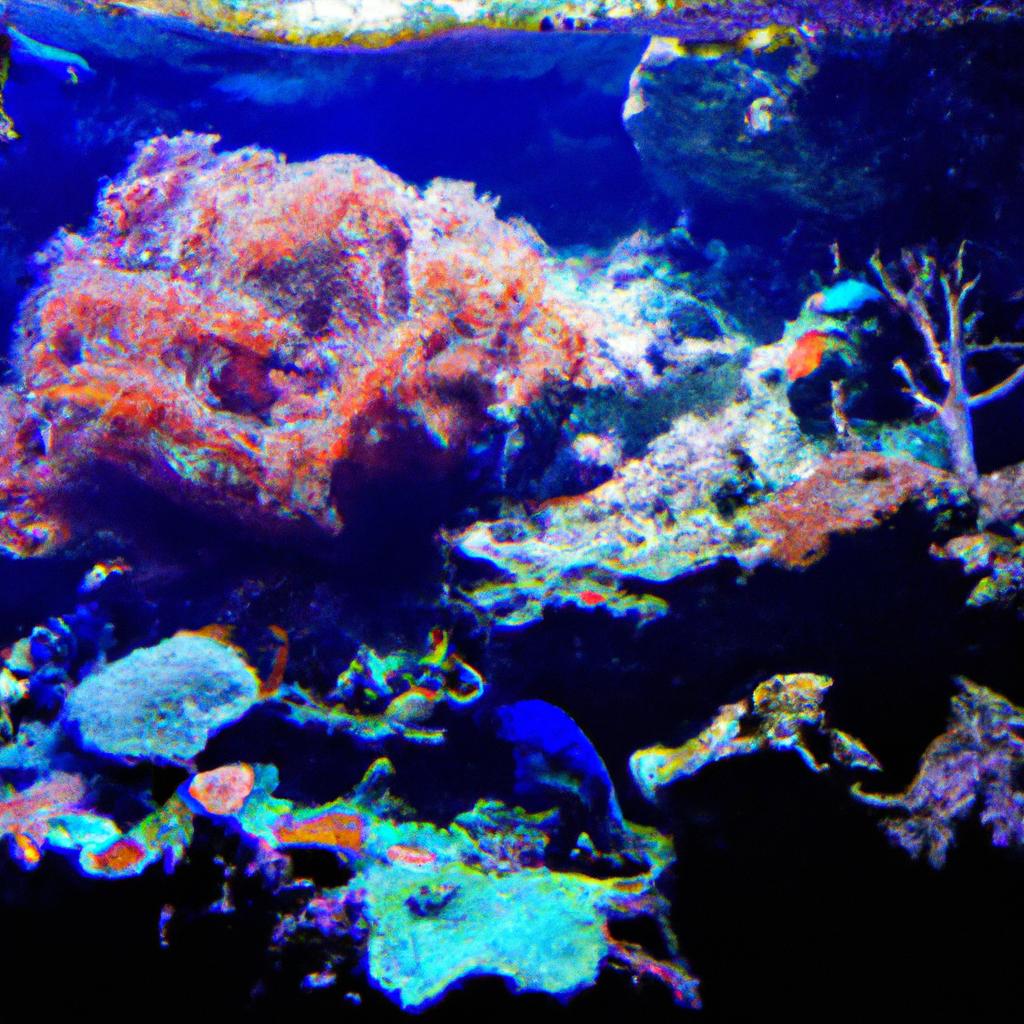
In conclusion, experiencing the beauty and mystery of coral reefs at night is indispensable for personal fulfillment and scientific breakthroughs. The unique behaviors and mesmerizing phenomenon of bioluminescence that unfold under cover of darkness offer an irreplaceable and unforgettable encounter.
Nevertheless, it is essential to bear in mind that coral reefs are fragile ecosystems under threat from climate change and human activities. We must all play our part in protecting and preserving these invaluable habitats, ensuring they thrive for subsequent generations.
At TooLacks, we espouse responsible tourism and environmentally conscious practices, fostering an appreciation for the splendor of coral reefs and other natural wonders. Join us in our mission to protect our planet’s precious ecosystems and experience the magic of coral reefs at night responsibly and sustainably.
